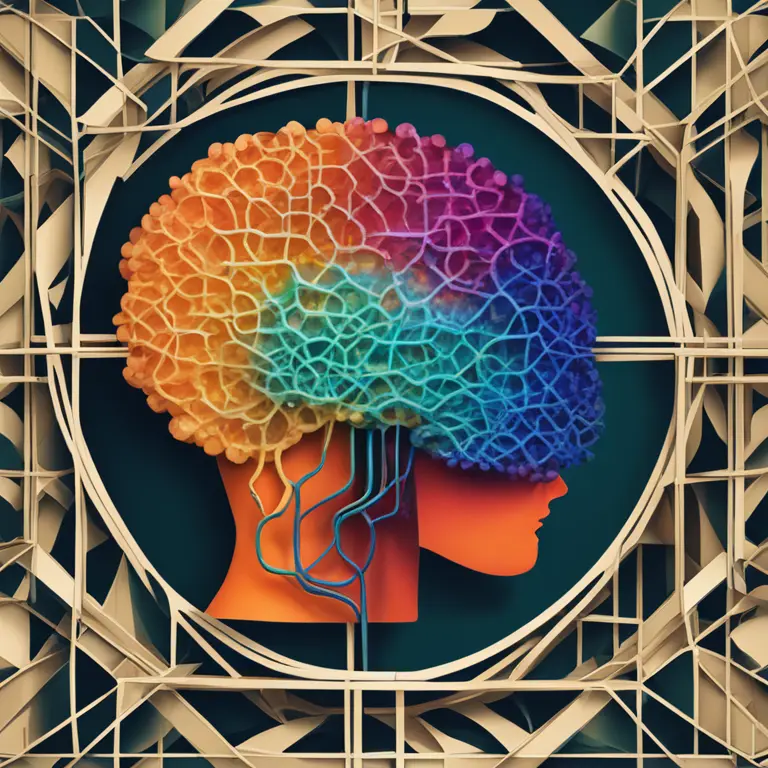
Meditation's Role in Easing OCD Symptoms
Examine the potential of meditation as a supportive practice for those managing Obsessive-Compulsive Disorder (OCD), focusing on its calming effects on the mind and behavior.
article by Hina Kurosawa
Introduction to Meditation and OCD
Meditation has long been hailed for its calming and centering effects on the human mind. It is a practice rooted in ancient traditions, yet it has found its place in modern therapeutic settings. Obsessive-Compulsive Disorder (OCD) is a condition characterized by intrusive thoughts and compulsive behaviors. It can be a source of significant distress and interference in daily life. This article examines the intersection of meditation and OCD, exploring the extent to which meditation can serve as an adjunct to traditional treatments and offer relief to those affected by OCD.

Understanding OCD
OCD involves a pattern of unwanted thoughts and fears (obsessions) that lead to repetitive behaviors (compulsions). The obsessions create anxiety, while the compulsions are performed in an attempt to alleviate this anxiety. It is a complex disorder, often requiring a multifaceted approach to treatment including cognitive behavioral therapy (CBT) with a focus on Exposure Response Prevention (ERP), and sometimes medication. Despite advances in treatment, many individuals seek additional complementary practices to manage their symptoms.

The Mechanisms of Meditation
Meditation, particularly mindfulness meditation, encourages an individual to observe their thoughts and feelings without judgment. This practice is based on the concept of being present in the moment and developing an awareness that thoughts are transient and do not require reactive behaviors. By promoting relaxation and awareness, meditation can potentially create a break in the cycle of obsessions and compulsions, giving the person with OCD a tool to manage their anxiety in a non-compulsive way.

Research on Meditation and OCD
Recent studies suggest that meditation may benefit individuals with OCD. While it is not a cure, evidence demonstrates that incorporating meditation can reduce the frequency and intensity of OCD symptoms. Regular meditation has been associated with decreased anxiety levels and improved emotional regulation. It also promotes neuroplasticity, which is the brain's ability to form new connections, potentially leading to more adaptive responses to intrusive thoughts.
Incorporating Meditation into Treatment
For those looking to include meditation in their OCD management plan, it is important to approach this practice with guidance. Learning meditation under the supervision of a professional who understands OCD is crucial to ensure that the practice is constructive and not used as a compulsion itself. Gradually integrating meditation into daily routines can assist individuals in developing a healthy coping mechanism that complements their existing treatment regimen.
Limitations and Considerations
It is essential to acknowledge that meditation is not a standalone treatment for OCD. Some individuals may find that meditation triggers their anxiety rather than eases it. As such, it should be used in conjunction with traditional therapies and not as a substitute. A holistic approach that considers the unique needs of the individual will always be the most effective strategy in managing OCD.
Conclusion
Meditation could serve as a supportive technique for those battling OCD, offering a way to lessen anxiety and interrupt the cycle of intrusive thoughts and compulsive behaviors. As research continues to reveal more about the benefits of meditation, it holds promise as a complementary practice within the broader landscape of OCD treatment options. Emphasizing the importance of professional guidance and an integrated treatment plan, meditation may offer a glimmer of hope for many seeking reprieve from their symptoms.
Published: 1/14/2024
Modified: 1/15/2024
More predictions
Come back here soon to learn more about yourself and your future


Healing Through Mindfulness: Meditation & Trauma Recovery
Mindfulness meditation offers a powerful tool for individuals seeking solace and healing from traumatic experiences. Discover how this practice can aid in the journey towards inner peace.


Harmonizing Life with Meditation Mantras
Delve into the transformative power of meditation mantras to align mind, body, and spirit for a harmonious existence.


Mindfulness Meditation Basics for First Graders
Introducing foundational mindfulness meditation practices to instill calm and focus in first-grade students.